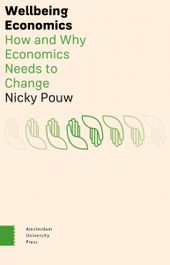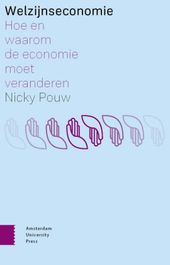
How and Why Economics Needs to Change
Amidst rising global inequality, migration, climate change, health pandemics and deepening poverty, it is time to redirect our economy towards more sustainable and socially just processes and outcomes. Join us in celebrating the new book ‘Wellbeing Economics’ by Nicky Pouw that argues for a new framework that puts human wellbeing at the centre. With: Nicky Pouw, Daniel Mügge and Brian Burgoon.
In her book, Nicky Pouw postulates ten reasons why economics should change to remain a relevant discipline and develops a Wellbeing Economic Matrix (WEM) to implement this approach. In doing so, it is one of the first economics books that ‘rethinks the economy’ from head to tail.
During the programme, Nicky Pouw will present her new book. Then, Daniel Mügge will respond to the book. There will be ample time for discussion and questions with the audience.
Wellbeing Economics and Welzijnseconomie are now available for pre-ordering via Amsterdam University Press. Use code “ActiePouw2020” to receive shipping costs off all orders placed before October 31st.
About the speakers
Nicky Pouw is Associate Professor in the Economics of Wellbeing at the Governance and Inclusive Development group at the University of Amsterdam. She is author of Introduction to Gender and Wellbeing in Microeconomics (2017) and co-editor of The Wellbeing of Women in Entrepreneurship. A Global Perspective (2019).
Daniel Mügge is Professor of Political Arithmetic at the political science department of the UvA. the political economy of macroeconomic indicators. His FickleFormulas research project asks: why do we measure the economy the way we do?
Brian Burgoon (moderator) is Professor of International and Comparative Political Economy at the University of Amsterdam (UvA). He is also Academic Director of the Amsterdam Institute for Social Science Research (AISSR) at the UvA.


:rgb(-15)

:rgb(-25)
